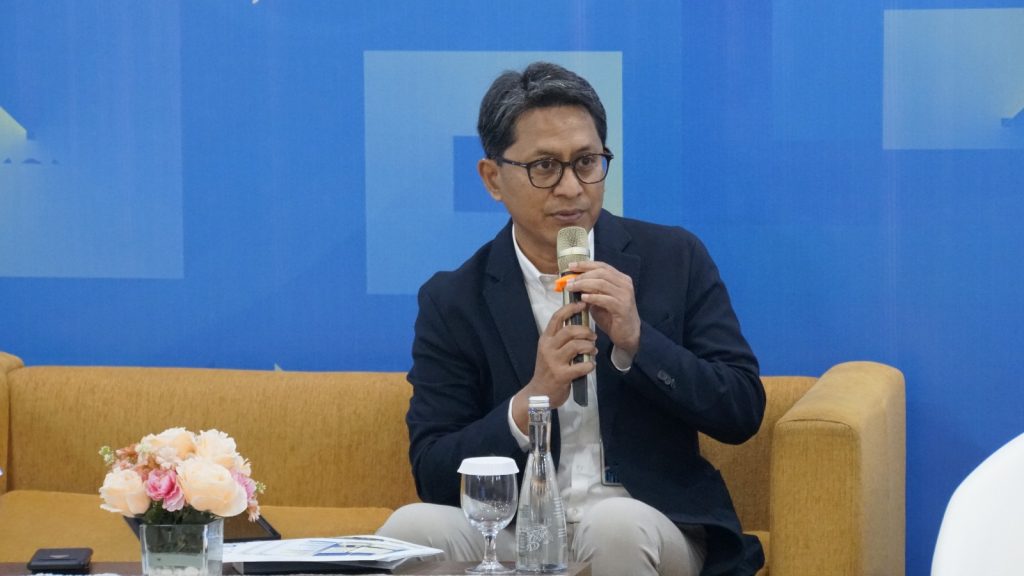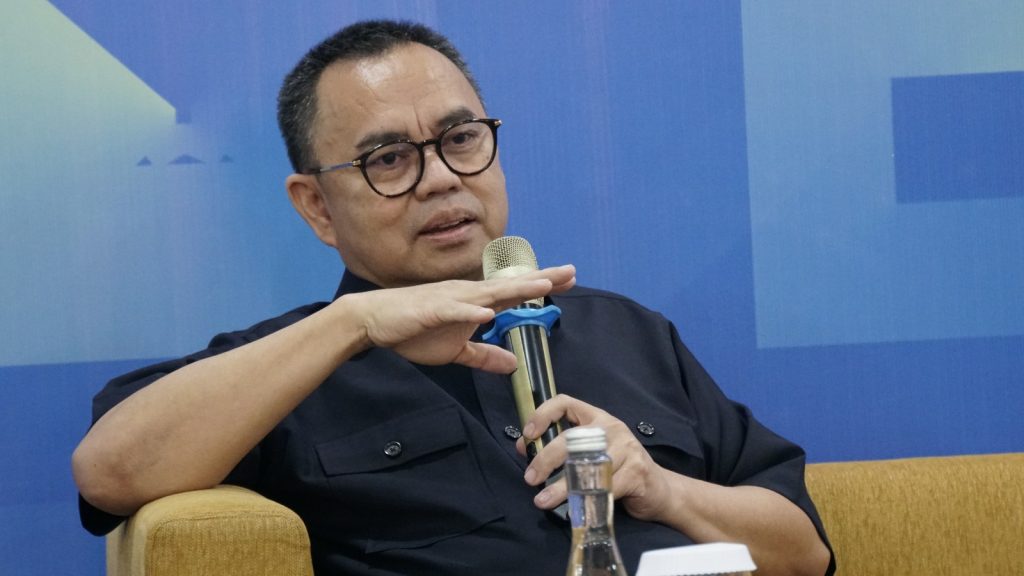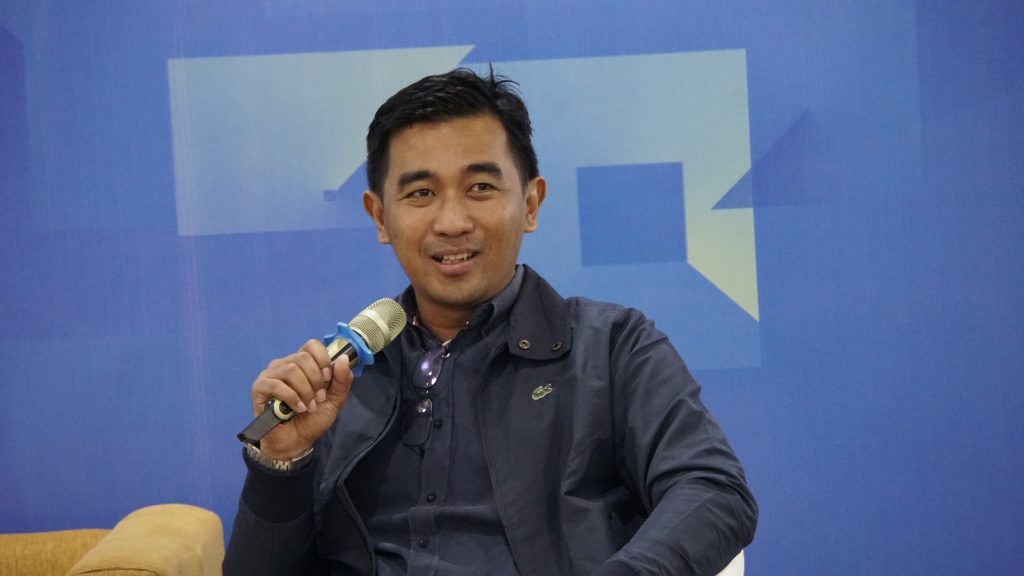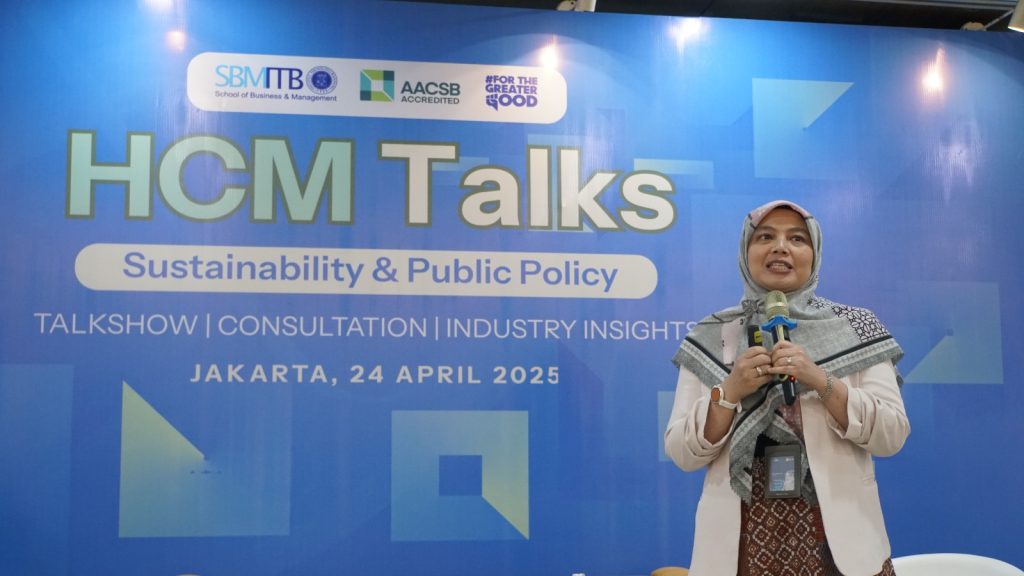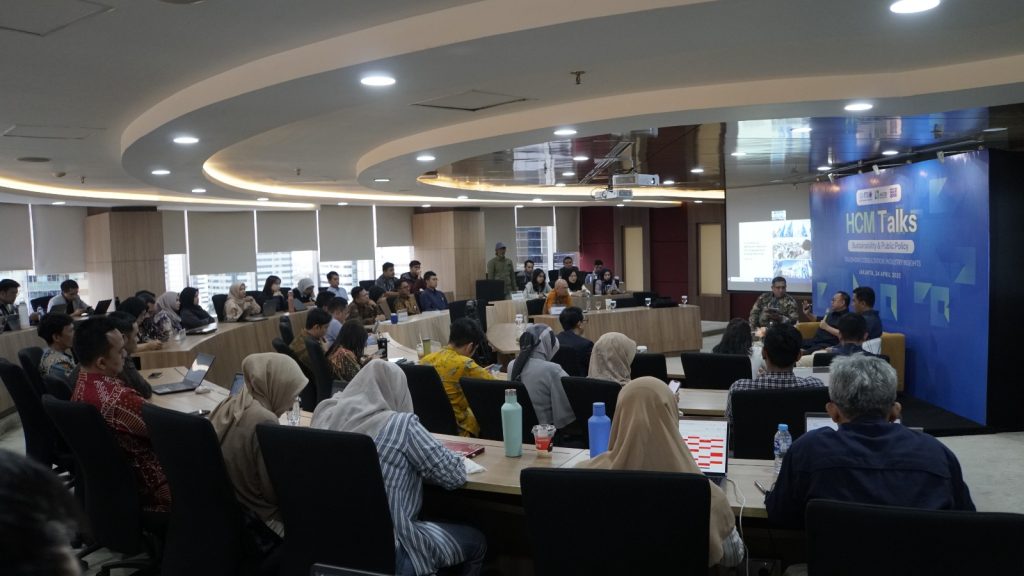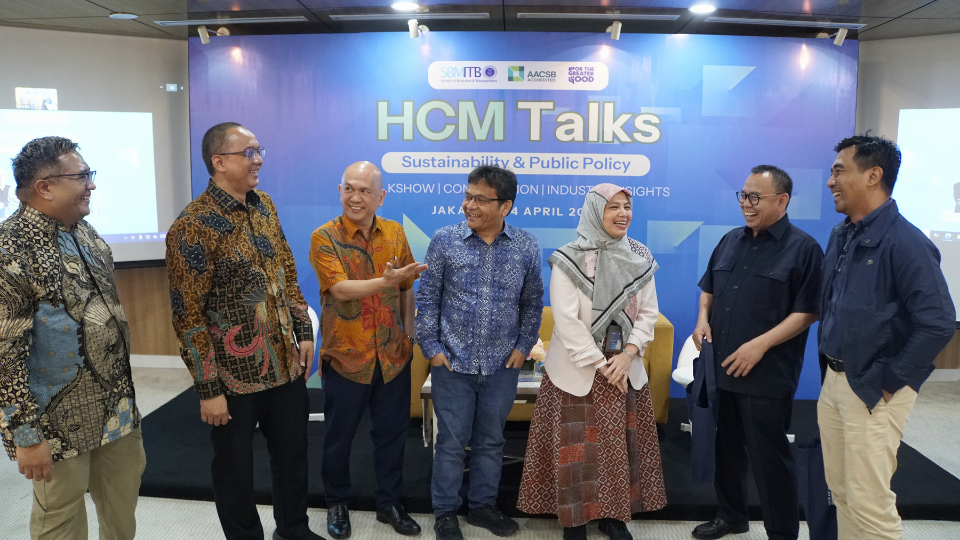SBM ITB, Jakarta Campus, held Human Capital Management (HCM) Talks, a discussion that explores current industry issues in the scope of human resource management, at the Graha Irama Building (Indorama) on Thursday (24/4). Carrying the theme of Sustainability & Public Policy, this discussion involved several speakers such as Sudirman Said, Chairman of the Harkat Negri Institute & Minister of Energy and Mineral Resources of the Republic of Indonesia (2014-2016); Director of the Center for Policy and Public Management SBM ITB Yudo Anggoro; Director of HC & Transformation of PT Jasa Marga (Persero) Tbk Bagus Cahya Arinta B; and EVP of Energy Transition and Sustainability of PT. PLN (Persero) Kamia Handayani.
Several partners from SBM ITB participated in the discussion, including academics from Bournemouth University, representatives from the National Research and Innovation Agency, and various well-known national companies across different industries such as PT KAI, PT Pos Indonesia, PT Bio Farma, PT Amerta Indah Otsuka, PELNI, PT KCI, PT Petra Energi Indonesia, PT Toyota Motor Manufacturing and many more.
Director of HC & Transformation of PT Jasa Marga (Persero) Tbk., Bagus Cahya Arinta, discussed integrating sustainability issues in formulating Human Capital policies. According to Bagus, the national development plan is translated into the state company strategy to suit the field of work.
The plan is translated into various implementable policies suitable for human resources and the current conditions faced by the company. This way, every individual in the company can embrace sustainability values.
The session discussed the best practices of public-private partnerships in knowledge sustainability. The panelists emphasized the importance of human participation in sustainability issues.
Sudirman Said emphasized that sustainability is not merely about ownership; it’s about how we live our lives. He pointed out that achieving sustainability requires constructive collaboration.
Yudo Anggoro highlighted the challenge of supporting a system that enhances capacity and capability in policymaking in Indonesia. He expressed hope that the government will respond effectively to pressing societal issues.
Kamia noted that the current discussion on sustainability primarily revolves around climate change and the climate crisis. She stressed that prioritizing clean emissions is essential in addressing these challenges today.
